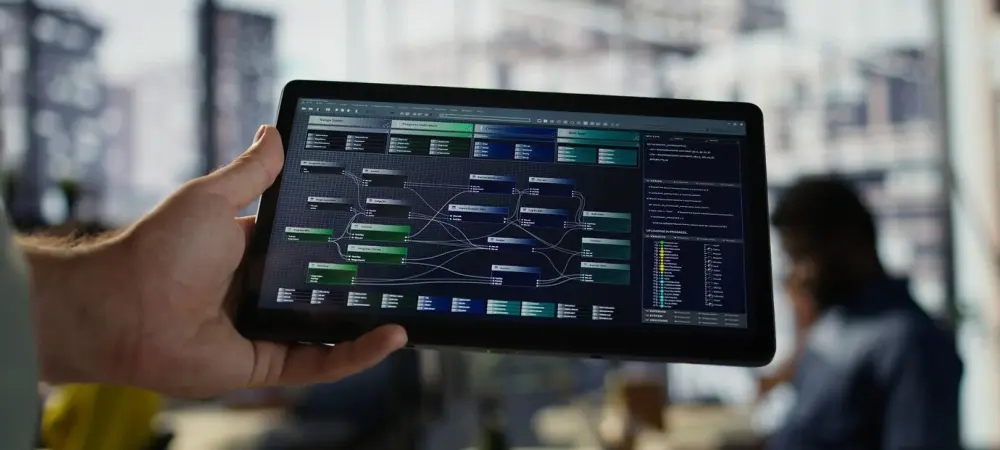Automation and Efficiency in Platform Engineering
Role of Automation in Development
Automation within platform engineering is not merely a supplementary feature but a cornerstone of its application, playing a crucial role throughout the entire development lifecycle. The emphasis on automation extends far beyond simple code execution, bringing efficiency and consistency to network configurations and deployment processes. By integrating comprehensive automation, platforms become self-sustaining environments where developers can focus on writing innovative code rather than being tangled in extensive configurations or awaiting validation from operations teams. However, with such power comes the responsibility of maintaining meticulous control over the automated processes to avoid redundancy and operational drift, which can dilute the effectiveness and stability of development efforts.
Designing Internal Tools and Cultural Influence
Central to platform engineering’s promise is the design and delivery of internal tools tailored to meet specific organizational needs, underscored by a cultural workflow mindset. The metaphorical “golden path” often cited by proponents captures this essence—offering structured, predictable routes that teams can follow to achieve consistent outcomes. Cultural workflows in platform engineering are embedded through consistent practices and work ethics that encourage developers to work on a single, coherent track rather than diverging into myriad exploratory, often conflicting processes. The risk lies in becoming overly rigid, stifling creativity and adaptability that organizations need to thrive in dynamic digital landscapes. Thus, the challenge is to strike a balance, nurturing structured consistency without falling into the trap of stagnation.
Risks and Challenges in Platform Engineering
Balancing Speed and Quality
In the pursuit of speed brought by platform engineering, quality must not be sacrificed. Herein lies the role of a Developer Experience (DevEx) team, which operates at the intersection of speed and quality, ensuring that platform tools and processes align with organizational standards without slipping into chaotic experimentation. Adopting an integrated testing strategy—where checks and validations are organically built into workflows—provides developers with robust support without compromising on agility. Speed and quality are, thus, two sides of a finely crafted coin that must constantly be balanced in the evolving practices of platform engineering.
Preventing Fragmentation in Large Enterprises
A significant challenge in platform engineering is preventing operational fragmentation, especially in large enterprises where disparate teams might inadvertently develop isolated processes. The fragmentation challenge is pronounced when burgeoning teams, driven by a desire to innovate, fail to align their processes with broader organizational protocols or fail to utilize shared platforms, thus multiplying dependencies and creating excessive complexity. This disunity also impacts the security posture, making consistent vulnerability management arduous. Ensuring cross-team communication and holistic strategies that promote cohesion is vital for preventing isolated toolsets that detract from overall organizational agility.
Developer Experience and Consistency
Consistency in Developer Tools and Processes
A fundamental tenet of platform engineering is establishing a consistent array of tools and processes that streamline development without stifling innovation. Standardization in tools used across teams ensures that developers can shift focus across different projects without encountering steep learning curves, substantially boosting productivity. This predictability in development is essential for sustaining seamless workflows amid rapidly evolving technological landscapes. However, these tools and processes must remain flexible enough to adapt to specific project needs without disrupting the core goal of delivering consistent and reliable software solutions.
Aligning with Rapidly Advancing Technologies
Platform engineering must continuously evolve to align with rapidly advancing technologies like artificial intelligence and machine learning. Embracing these technological advancements within platform engineering frameworks involves integrating advanced AI-driven tools for tasks like compliance monitoring, process automation, and real-time analytics. A future-ready platform engineering strategy must foresee the implications of such rapid technological evolutions, creating integration pathways that bolster development agility and innovation.
Industry Perspectives and Future Directions
Insights from Industry Experts
Industry leaders underscore the importance of integrating platform engineering with robust developer experience practices. Chris Aniszczyk of the Cloud Native Computing Foundation emphasizes the role of platform engineering in enhancing efficiency while avoiding fragmented tooling. Soham Ganatra’s input on external handshakes sheds light on the “shift out” concept, vital for ensuring platform extensibility beyond organizational confines. Insights such as these guide the future course of platform engineering, as practitioners seek to balance structured consistency with adaptable freedom across varied organizational ambitions.
Sustaining Innovation Through Cultural and Operational Strategy
Platform engineering is not merely a technical pursuit but a cultural and operational strategy fostering sustainable innovation. It calls for continuous adaptation to evolving industry landscapes and the implementation of robust cultural practices aligned with organizational ethos. Future directions in platform engineering should focus not just on accommodating present technological demands but also on preparing for unforeseen advancements. Cultural cohesion, complemented by a vision for emerging technologies, will shape the successful implementations of platform engineering initiatives, crafting a path of sustainable organizational scalability and innovation.
Looking Ahead: Lessons and Next Steps
The swift progress of technology continually triggers equally swift shifts and needs in software development methodologies, with platform engineering emerging as a central topic. This approach presents an attractive pathway to simplify development processes, offering promises of enhanced automation and greater efficiency across various segments of the software lifecycle. However, as with any transformative approach within a complex digital ecosystem, it introduces certain questions and challenges. Platform engineering is a contemporary strategy that is redefining how teams approach building, deploying, and maintaining software, bringing both opportunities and challenges to the table. Consequently, organizations need to anticipate not just the benefits, but also address potential drawbacks, such as fragmentation, ensuring robust strategies are in place to navigate the multifaceted impacts of this transformative practice.

